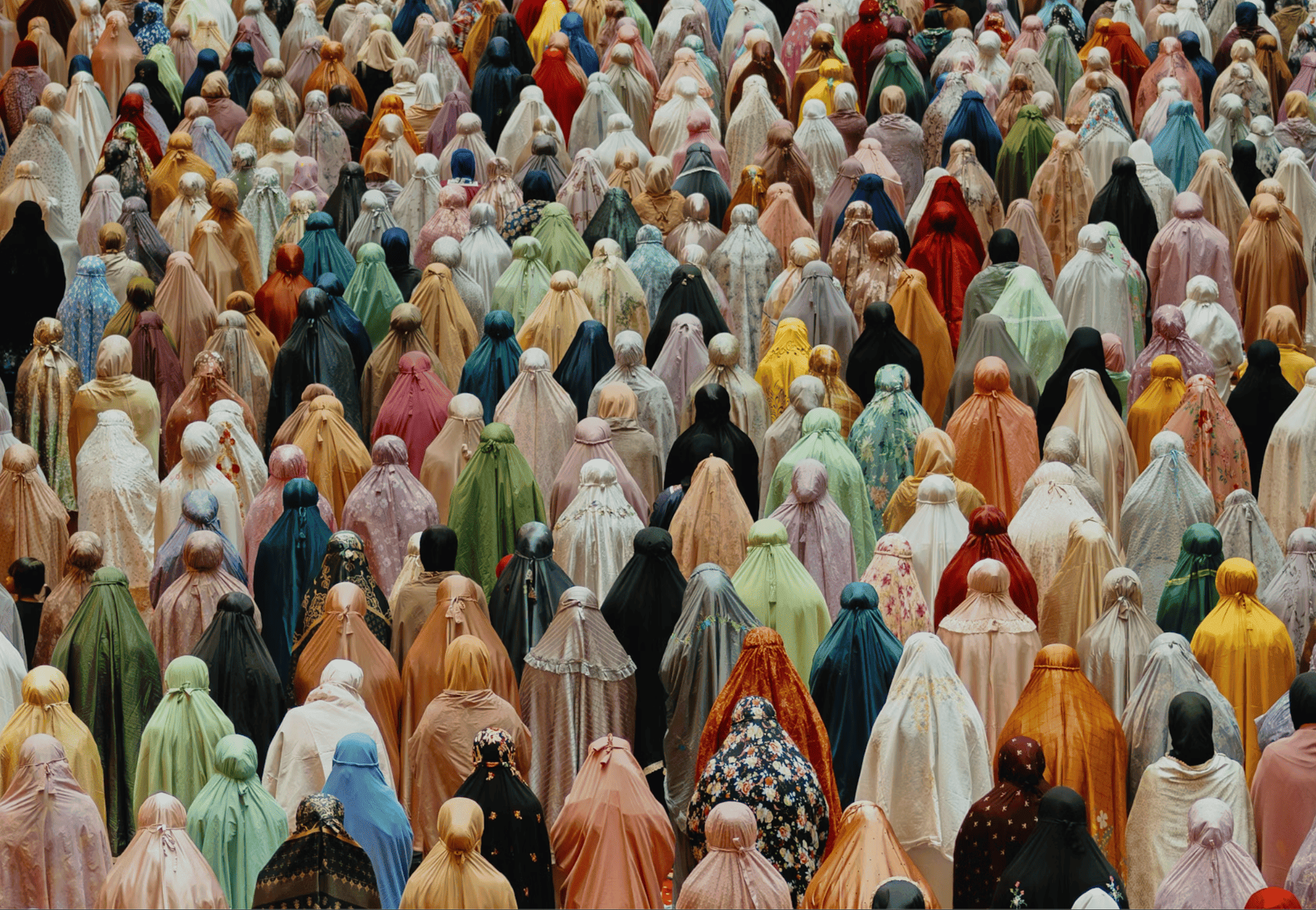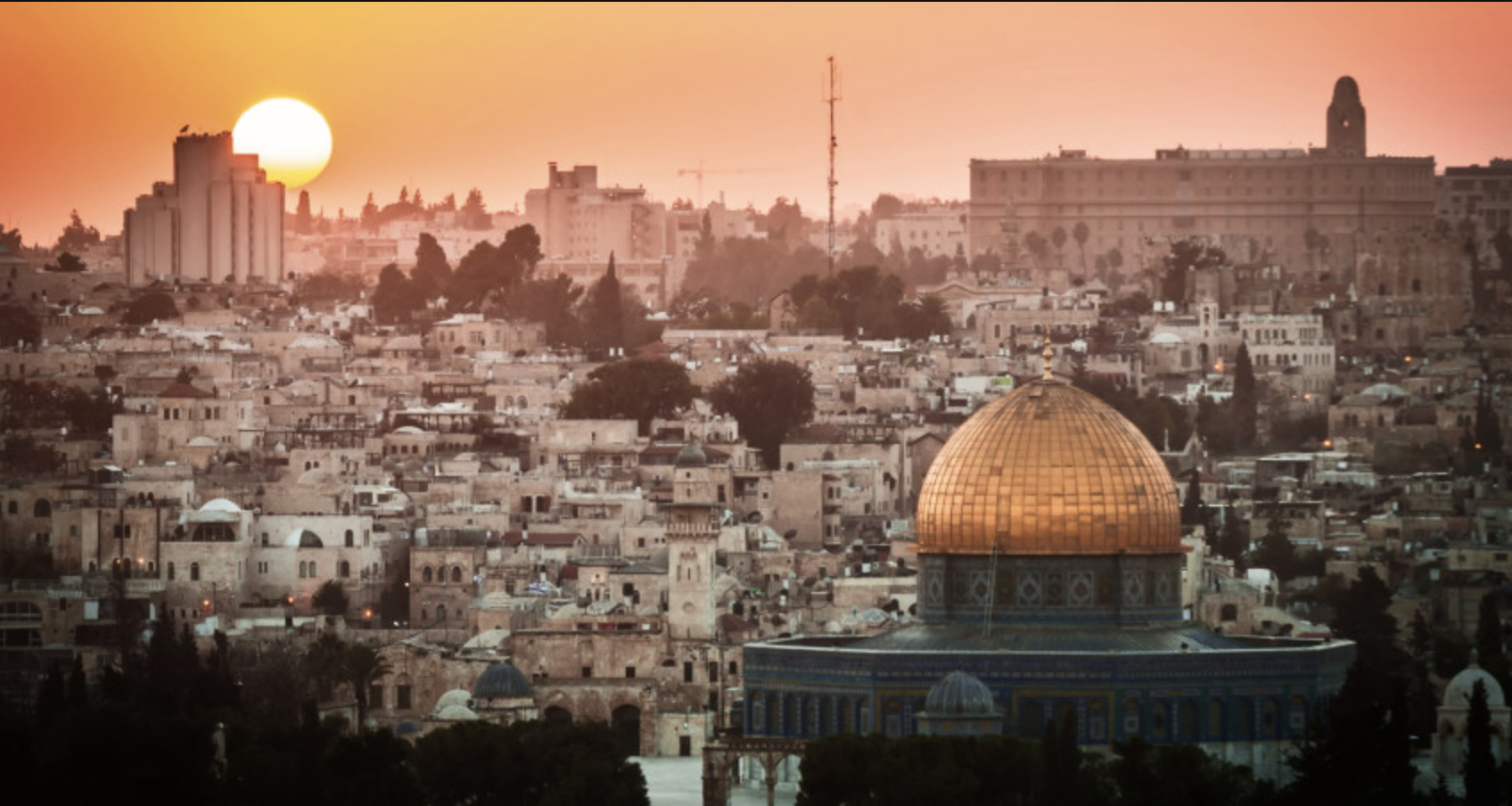This is part of an ongoing series of the explanation of the Major Sins in Islam. Read Part 5 here.
مُصَلٍّ بِغَيْرِ الوَقْتِ، أَوْ غَيْرِ قِبْلَةٍ /// مُصَلٍّ بِلَا قُرْآنِهِ المُتَأَكِّدِ
12. And one who prays in other than the time or towards other than the Qiblah
Or the one who prays without his Quran (al-Fatiha) being certain
Sin 19: Praying Outside of Time
This includes praying before the entry of the prayer's time. Allah has designated specific times for each prayer. Prayer is not valid before or after this specified time. The only exception to the rule is praying Asr or Isha before its time by combining it with Dhuhr and Maghrib respectively – Jama’ Taqdeem provided there’s a valid condition or a need.
The 5 Daily Prayers were legislated on the Night of Isra wal Mi'raj. 1.5 years before Hijrah. Jibreel was sent the next morning when the sun passed its zenith to teach the Prophet ﷺ the respective times of the prayers.
It is narrated on the authority of Abdullah Ibn Abbas رضي الله عنه: The Messenger of Allah (ﷺ) said, "Jibreel (ﷺ) led me in prayer at the House (Ka'bah). He prayed the noon prayer with me when the sun had passed the meridian to the extent of the thong of a sandal; he prayed the afternoon prayer with me when the shadow of everything was as long as itself; he prayed the sunset prayer with me when one who is fasting breaks the fast; he prayed the night prayer with me when the twilight had ended; and he prayed the dawn prayer with me when food and drink become forbidden to one who is keeping the fast.
On the following day he prayed the noon prayer with me when his shadow was as long as himself; he prayed the afternoon prayer with me when his shadow was twice as long as himself; he prayed the sunset prayer at the time when one who is fasting breaks the fast; he prayed the night prayer with me when about the third of the night had passed; and he prayed the dawn prayer with me when there was a fair amount of light.
Then turning to me he said: 'Muhammad, this is the time observed by the prophets before you, and the time is anywhere between two times.'" [Abu Dawud]
On the first day Angel Jibreel led all the prayers in their earliest times and on the second day he led all the prayers in their closing times. It is best to pray all the prayers at their earliest times with the exception of Isha as we have narrations that mention of it being better to delay Isha. Praying alone is better than praying late in a congregation because it is the end of time. Praying on time is more important than praying in congregation.
It was narrated from 'Abdullah bin 'Amr رضي الله عنه that the Prophet (ﷺ) said, "When you pray Fajr, its time is until the first part of the sun appears. When you pray Dhuhr, its time is until 'Asr comes. When you pray 'Asr, its time is until the sun turns yellow. When you pray Maghrib, its time is until the twilight has disappeared. When you pray 'Isha, its time is until half of the night has passed." [Muslim]
The term Waqt al-Jawaz is used when the prayer has one time e.g. Dhuhr prayer. Waqt al-Mukhtar is used when the prayer has two times e.g. Asr prayer. As per the Hanbali madhab, the Prayer timings are:
Dhuhr
The time for Dhuhr is when the sun reaches its zenith (i.e., has passed the highest part of the sky and started to descend towards the west) till the length of an objects shadow at the zenith equals its height. The entry of Dhuhr is when the sun is at its highest point in the sky.
It ends when the objects shadow equals the length of the object itself, plus the length of the shadow of the object at the time of the zenith.
We can also know the time of the zenith by the clock: divide the time between sunrise and sunset in half, and that is the time of the zenith.
Asr
- Waqt al-Mukhtar (preferred time): When the height of the object is equal to the height of its shadow. This lasts from the beginning of the time for Asr until the sun begins to turn yellow. This was taught by Angel Jibreel on Day 1.
- Waqt al-Darurah (time of necessity): When the height of the object is equal to twice the height of its shadow. This lasts from the time the sun turns yellow until sunset. This was taught by Angel Jibreel on Day 2. This is the Mu'tamad of the Madhab
There is a second narration in the Hanbali madhab that can be used to make things easy for people especially those living in mixed communities like where the Ahnaf delay Asr - and this is the position of Imams Ibn Qudamah, Ibn Taymiyyah, Ibn Muflih and others. They say the end time of Asr is not when the shadow of the object is twice its length but when there is a strong yellowing of the sun and this is much closer to Maghrib and sunset.
Maghrib
- Waqt al-Mukhtar (preferred time): From when the disk of the sun dips below the horizon till the stars become visible. The time for Maghrib starts immediately after the time for Asr ends, which is when the sun sets, until the twilight or red afterglow has faded.
- Waqt al-Karaha (disliked time): From when the stars become visible till the entrance of the time of Isha. When the red afterglow has disappeared from the sky, the time for Maghrib ends and the time for Isha begins.
Angel Jibreel came for Maghrib on both days when the sun set.
The Madhab usually states only 1 time for Maghrib, but Imam al-Hajjawi in al-Iqna' stated these two times. Imam al-Buhuti reconciled and stated that the two times are divided into preferred time and permissible time.
Isha
- Waqt al-Mukhtar (preferred time): From the time 'Isha begins till the first third of the night. (Check the time of Maghrib and the time Fajr. Calculate the hours in between and divide it by 3 to get the three parts of the night). Angel Jibreel prayed at the beginning of this time on Day 1 and at the end of this time on Day 2.
- Waqt al-Darurah (time of necessity): From the time the first third of the night begins until Fajr time.
There is, however, a second opinion within the school which says that al-Waqt al-Ikhtiyari ends at midnight and not the first third. This was the opinion of some of the giants of our school from the likes of al-Muwaffaq Ibn Qudama, Ibn 'Aqil, al-Majd Ibn Taymiyyah (Ibn Taymiyyah's grandfather) and others, may Allah have mercy upon them all. Midnight does not mean 12AM. To calculate midnight, check the time between sunset and the break of true dawn (when Fajr begins) then divide it in half; that halfway point is the end of the time for praying Isha (and that is midnight).
Fajr
- The time for Fajr begins with the onset of the “second dawn” (al-fajr al-thani) and ends when the sun starts to rise.
The “second dawn” is the brightness that appears along the horizon in the east and extends north to south. The “first dawn” (al-fajr al-awwal) occurs approximately one hour before this, and there are differences between the two:
1.True fajr is horizontal light, which extends from North to South. While false fajr is vertical it extends from East to West.
2.True fajr light increases gradually until the sun rises. Unlike false fajr light stays for a short period and then darkness covers the sky again.
3.True fajr light is connected with the entire horizon unlike the false fajr is disconnected from the horizon by darkness.
Jabir رضي الله عنه narrated that the Prophet ﷺ said in distinguishing between the two: “Fajr is two: Fajr, which is called dhanab as-sarhaan (wolf tail); it is the false one, which goes vertically, and not horizontally. The other (i.e. true fajr) goes horizontally but not vertically” [Al-Hakim & Al-Baihaqi]
Anas رضي الله عنه reported: The Messenger of Allah ﷺ said, “This is the prayer of the hypocrites: He sits watching the sun decline until it is between the two horns of Satan, then he quickly pecks the ground four times while he only remembers Allah for a few moments.” [Muslim] Only when a person has a legal excuse for delaying his prayer, only then will he be safe from incurring sin.
The Prophet ﷺ said: “Whoever forgets a prayer, let him offer it as soon as he remembers, for there is no expiation for it other than that.” [Bukhari]
Sin 20: Not Facing the Qiblah
Qiblah means the direction of the Kabah. Even when the qiblah was Bait al-Maqdis the Prophet used to pray such a way while in Makkah that he was facing Jerusalem but the Kabah was in front of him. He prayed like this for 16-17 months.
Allah says,
قَدْ نَرَىٰ تَقَلُّبَ وَجْهِكَ فِى ٱلسَّمَآءِ ۖ فَلَنُوَلِّيَنَّكَ قِبْلَةًۭ تَرْضَىٰهَا ۚ فَوَلِّ وَجْهَكَ شَطْرَ ٱلْمَسْجِدِ ٱلْحَرَامِ ۚ وَحَيْثُ مَا كُنتُمْ فَوَلُّوا۟ وُجُوهَكُمْ شَطْرَهُۥ ۗ وَإِنَّ ٱلَّذِينَ أُوتُوا۟ ٱلْكِتَـٰبَ لَيَعْلَمُونَ أَنَّهُ ٱلْحَقُّ مِن رَّبِّهِمْ ۗ وَمَا ٱللَّهُ بِغَـٰفِلٍ عَمَّا يَعْمَلُونَ
Indeed, We see you ˹O Prophet˺ turning your face towards heaven. Now We will make you turn towards a direction ˹of prayer˺ that will please you. So turn your face towards the Sacred Mosque ˹in Mecca˺—wherever you are, turn your faces towards it. Those who were given the Scripture certainly know this to be the truth from their Lord. And Allah is never unaware of what they do. [Surah al-Baqarah, 144]
Wherever a person is, it is incumbent upon them to face the Qiblah. Without this, the salah is not valid as it is of the Shurut of Salah.
The Messenger of Allah ﷺ said, “When you get up to pray, perform the ablution completely, and then turn towards the Qibla and recite takbir
People can be subdivided into 2 groups:
1. The one praying in the Haram: He needs to make sure he is facing the Kabah and in such a way that if the wall in front of him is removed the Kabah is right in front of him.
2. The one in another country. They are to face the direction of the Qiblah and they have the allowance to vary in slight angles. Wanting to have pinpoint accuracy is very difficult and not asked for by the Deen. If the Qiblah is in the West and the person is facing West then that is enough for them.
Scholars divide the people who pray into 3 categories:
1. Those inside Masjid al-Haram: They must face the Kabah and they have no excuse. The prayer is invalid if not done so intentionally.
2. Those in Makkah: They must face the Masjid al-Haram.
3. Those outside Makkah: They must face direction of the Kabah or Majsid al-Haram if accurately possible.
Abu Hurairah رضي الله عنه narrated that Allah's Messenger ﷺ said: "What is between the east and the west is Qiblah." [Tirmidhi] Imam al-San’ani رحمه الله said in Subul al-Salaam (1/260). This hadith indicates that what is required is to face in that direction, and not towards the precise location of the Ka’bah when one cannot see it.
What if a person cannot find the Qiblah direction? There are 2 scenarios here:
1. If a person has tried to work out the direction of the Qiblah, estimated to the best of his ability, used all resources available to him, and then prayed, then he does not have to repeat the prayer, because he has done what was required of him.
2. If the person does not try hard or doesn't even makes an effort to work it out or find out, then he has to repeat the prayer and will be considered sinful.
A person has an excuse to not face the Qiblah only when they are faving a valid and legal reason for it. Imam Ibn Qudamah رحمه الله stated, “Because it is one of the conditions of prayer which is waived when one is unable to do it, as is the case with all the other conditions and pillars (essential parts) of the prayer. And he did what he was obliged to do as best he could, so he does not have to repeat it. This is like the one who is unable to cover himself and prays naked; or one who is unable to face the qiblah so he prays facing a different direction; or one who is unable to stand so he prays sitting.” [al-Mughni]
The exceptions to facing the Qiblah are the non-obligatory prayers. The Prophet ﷺ is reported to have prayed his Sunan and Witr atop his camel and he'd face wherever the camel moved. It is better if possible to face the Qiblah when starting the Salah. The Prophet used to motion for the rukuh and sujud using his head. But when the Prophet would want to pray the fardh Salah he would dismount and pray it standing. The Salatul Khawf where a person cannot have that tranquillity of prayer and they have the permission to do their Salah be it walking, standing or on their ride. Allah has given us around 8 methods of praying in such a state.
Sin 21: Not Reciting Surah al-Fatihah
This refers to a person not reciting Surah al-Fatihah in the salah. Reciting Surah al-Fatiha is considered an arkan or pillar of the salah with the exception of the congregation behind the Imam as per some scholars.
The Prophet ﷺ said: “There is no prayer for the one who does not recite the Opening of the Book (al-Fatihah).” [Bukhari]
Narrated Abu Hurairah: Once the Prophet (ﷺ) entered the mosque, a man came in, offered the prayer and greeted the Prophet. The Prophet returned his greeting and said to him, "Go back and pray again for you have not prayed." The man offered the prayer again, came back and greeted the Prophet. He said to him thrice, "Go back and pray again for you have not prayed." The man said, "By Him Who has sent you with the truth! I do not know a better way of praying. Kindly teach Me how to pray." He said, "When you stand for the prayer, say Takbir and then recite from the Qur'an what you know and then bow with calmness till you feel at ease, then rise from bowing till you stand straight. Afterwards prostrate calmly till you feel at ease and then raise (your head) and sit with Calmness till you feel at ease and then prostrate with calmness till you feel at ease in prostration and do the same in the whole of your prayer." [Bukhari] In another narration it reads, "When you stand for the prayer, say Takbir and then recite Umm al-Qur’an and what Allah wishes you to recite..."
This teaches us that a prayer without Surah al-Fatihah is invalid and not accepted. If a person knowingly omits or refuses to recite Surah al-Fatihah, then they have left the fold of Islam.
Based on explanation by Sheikh Zafarul Hasan Madani حفظه الله and other scholars.
Previous Article: Explanation of Verses 10-11: https://www.inkoffaith.com/post/tanwir-al-basair-5
Current Article: Explanation of Verses 12: https://www.inkoffaith.com/post/tanwir-al-basair-6
Read Next: Explanation of Verse 13: https://www.inkoffaith.com/post/tanwir-al-basair-7
Disclaimer: All material found on InkOfFaith.com is for free and is for information purposes only. All material may be freely copied & shared on condition that it is clearly attributed to InkOfFaith.com as the original source. The views expressed on this site or on any linked sites do not necessarily represent those of InkOfFaith.com













